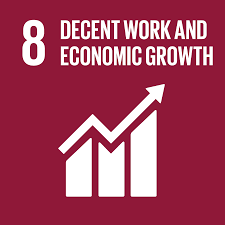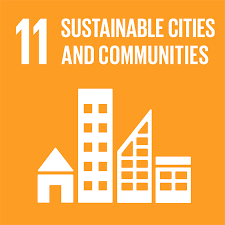The Reason Behind Our Increasingly Unheard Stories
- Mahek

- Nov 18, 2020
- 6 min read
Updated: Nov 19, 2020
This article is focused on the following UN Sustainable Development Goals:
Throughout the height of the #EndSARS movement, it is an untenable position to argue almost any media coverage surrounding the onslaught of protests and attacks on civilians. Police brutality is neither a new concept in Lagos, Nigeria nor anywhere else in the world, however, with social media, and technology, in general, being such a prominent feature in our world today, it is safe to say that it sent shock waves around the country to see the lack of tangible facts and figures in global media broadcasting.
(For those who are unfamiliar with it, SARS is the Special Anti-Robbery Squad, assembled in 1992 by the Nigerian government. SARS faces no repercussions for any of their actions and is permitted to use any means and forces necessary- essentially working outside the law. Under numerous presidential regimes, SARS has proven to be nothing but a violent task force; accused of rape, kidnapping, and stealing from young Nigerians- a multitude of whom have been unlawfully arrested. There have been 82 reportings of rape, extortion, and torture by members of SARS between January 2017 and May 2020 alone. In 2017 the Inspector General of Police re-organised the SARS unit after much public condemnation, and on October 10th of 2020, after a wave of protests- the worst of which resulted in the Lekki Massacre- the Nigerian Police Force disbanded SARS. This is the fifth time this unit has been disbanded (all under different names), and merely three days later, a new unit was announced under the name SWAT.

This is an incessant system which, as has been continuously revealed since the worldwide lockdown, has its roots in white supremacy. As seen in the US, the fight for civilians lives has uncovered the faults that lie in our policing systems, which have given way to greed and misuse of power. The Nigerian people continue to protest against police brutality and corruption- to follow along with the movement search under #EndSARS/EndSWAT.)
These days we look to our phones to feel further connected with current happenings and global politics; it’s simply the most efficient way to push out information and be kept up to date. While social media is unarguably an incredible database of resources, it must be said that regardless, it’s not always reliable- most online sites aren’t. However, social media especially can be viewed as a chain of gossip; it’s a string of commentary on commentary which is simply taken to be news. Given the constant flux and flurry of the state of our world today it is understandable that one would feel further in control having the news just a tap of our fingertips away, nonetheless, even though certain news outlets, such as CNN, and The New York Times, have followings on social media, the best and most reliable source of information is currently dying out- our local newspapers.
The best way to make money, what with Facebook and Google stowing away a majority of the ad dollars, is through online subscriptions; however, this is only viable for major national publications- the likes of The Washington Post, The Wallstreet Journal, &c. Thus, even though local newspapers are not only essential to communities (The Daily News updates a map of vital services- grocery stores and mental health clinics- and The Tampa Bay Times keeps a list of up and running businesses to be supported) but also responsible for uncovering the mass amount of stories which are of national importance- such as exposing sex offenders, like Jeffrey Epstein who was brought down by Julie K Brown, of The Miami Herald- they are still a dying business.
One of the major reasons for their going under is due to private equity firms using local papers’ failures as an opportunity to buy assets and pay off their investors. In the past few years, private equity firms located in the US have stakes in almost 8,000 companies which employ 8.8 million people. However, they don’t care about these companies going under- it doesn’t affect them monetarily- these firms care only about how efficiently they can make money, which is done primarily through leveraged buyouts.

Leveraged buyouts- better known as LBOs- work like this: a private equity firm wants to buy a local newspaper firm, but they don’t actually have the money to do so, instead they use a loan- the leverage. That debt should be the firm’s to pay off, but it isn’t, that sum is hefted onto the local paper company to pay back while the firm is simultaneously wringing them dry. (This is done through: selling the company’s real estate, laying off staff, charging substantial management fees, &c.) Should this lead to the firm bankrupting the newspaper company they wouldn’t even be on the hook for anything due to financial US legislation.
Statistics show that large organizations acquired by LBOs are 10 times more likely to go bankrupt than if otherwise. This has real human consequences as well. In the last 10 years, 597,000 jobs have been lost- all of them due to private equity.
This would prompt the question as to why a company would agree to an LBO given its obvious implications? The simple answer is vulture funds. A vulture fund is when private equity firms purposefully go after dying companies- thus local newspapers have largely been the perfect target.

The most colossal of these firms are Fortress Investment Group and Alden Global Capital- these two companies own 30% of newspapers in the US. Alden, however, is by far the worst. Not only do they sell property and slash funds in order to boost their earnings, but they are notorious for layoffs. Between 2012-2018, 12 Alden-owned union news companies downsized by 72%. For reference, take The Mercury, just outside Philadelphia. In 2012 they had 72 journalists, but today, not only has their workforce dwindled down to a measly 8 journalists but they also no longer have a building to work in.
This is happening all over the world, and as aforementioned, the issue has truly been brought to light by movements along with the likes of #EndSARS. Here in Nigeria, there are rules and regulations put in place surrounding the coverage of crises- specific to broadcasting technology.
broadcast
/ˈbrɔːdkɑːst/
verb
transmit (a programme or some information) by radio or television
(This is to say it’s not inclusive of local newspapers.)
In sum, The National Broadcasting Commission (of Nigeria) stated that broadcasting technology allows for broadcasters to procure information and provide it to viewers with immediacy, however, the rules state that they must keep the overall interest of the public in mind- in that they are not to aggravate the people. In addition, the broadcaster must maintain the role of a peace agent throughout this discourse and consider such situations with restraint and regards to the individuals, organisations, and/or governments involved so as to avoid “embarrassing them”.
Hence, the only genuine form of information can come from local news outlets.

The #EndSARS movement was and is an uncomfortable subject for us all, it’s a powerplay from the government that upsets the social contract between the citizens and the people who are supposed to protect their rights. Watching civilians be shot at and harmed by those very people rightfully send an uproar throughout the country, but the worst part for many was the not knowing. Not knowing what had happened, not knowing the truth, and not knowing what the outcome would be. The whole movement sparked a need for awareness amongst the youth here, but none of our questions could be answered by our usual sources. The only true way to stay aware is through your local newspapers. No matter how much nothing may be occurring wherever you are, you need to support your local paper in order to have the option of keeping informed should controversy occur. While there is little we can do to stop hedge funding and private equity firms, we can continue to support our local news companies and keep them afloat; there are always little steps to be taken, so remember, change starts with you.
Citations
Brown, Julie K. “How a Future Trump Cabinet Member Gave a Serial Sex Abuser the Deal of a Lifetime.” Miami Herald, Miami Herald, www.miamiherald.com/news/local/article220097825.html.
“Everything You Need to Know about Alden Global Capital and Digital First Media.” DFM Workers, 22 Oct. 2020, dfmworkers.org/everything-you-need-to-know-about-alden-global-capital-and-digital-first-media/.
Grieco, Elizabeth. “Fast Facts about the Newspaper Industry's Financial Struggles as McClatchy Files for Bankruptcy.” Pew Research Center, Pew Research Center, 30 May 2020, www.pewresearch.org/fact-tank/2020/02/14/fast-facts-about-the-newspaper-industrys-financial-struggles/.
Guess, Andrew, et al. All Media Trust Is Local?† Findings from the 2018 Poynter Media Trust Survey. 10 Aug. 2018, www.dartmouth.edu/~nyhan/media-trust-report-2018.pdf.
“'Vulture Capitalism'? How Private Equity Firms Work.” NPR, NPR, 19 Jan. 2012, www.npr.org/2012/01/19/145463691/vulture-capitalism-how-private-equity-firms-work.
Zeballos-Roig, Joseph. “Alexandria Ocasio-Cortez Laid out a Devastating One-Minute Case against Private Equity, Blaming It for Massive Job Losses.” Business Insider, Business Insider, 20 Nov. 2019, www.businessinsider.com/aoc-makes-devastating-case-against-private-equity-at-house-hearing-2019-11?IR=T.
Performance by Trevor Noah, Nigerian End SARS Protests - If You Don’t Know, Now You Know | The Daily Social Distancing Show, YouTube, 20 Oct. 2020, Nigerian End SARS Protests - If You Don’t Know, Now You Know | The Daily Social Distancing Show.







Comments